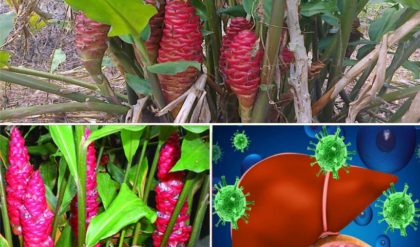Moringa, often referred to as the “Miracle Tree,” has been cherished for centuries for its remarkable health-enhancing properties. Native to the foothills of the Himalayas, this extraordinary plant has long been a cornerstone of traditional medicine for addressing various ailments. In recent years, it has gained global acclaim for its nutrient-packed profile and ability to support overall well-being. This article delves into the top 10 health benefits of moringa and provides practical tips on how to incorporate this versatile plant into your daily routine.

1. A Nutrient-Dense Superfood
Moringa is a nutritional powerhouse, brimming with essential vitamins like A, C, and E, and minerals such as calcium, potassium, and iron. A single serving of moringa leaves can meet a significant portion of your daily nutrient requirements, making it an excellent natural supplement for maintaining optimal health.
2. Rich in Antioxidants
Loaded with antioxidants like quercetin and chlorogenic acid, moringa helps protect the body from oxidative stress and free radical damage. These compounds have been linked to reduced inflammation, a lower risk of chronic diseases, and support for healthy aging.
3. Immune System Booster
The combination of vitamin C and iron in moringa plays a pivotal role in strengthening the immune system. By incorporating moringa into your diet, you can enhance your body’s natural defenses, making it more resilient against infections and illnesses.
4. Supports Cardiovascular Health

Moringa contributes to heart health by lowering cholesterol levels and regulating blood pressure. Its potent antioxidants combat inflammation, a leading factor in cardiovascular diseases, offering a natural way to protect and support your heart.
5. Promotes Digestive Health
Thanks to its high fiber content, moringa aids in digestion and promotes regular bowel movements. Its anti-inflammatory properties can also soothe the digestive tract, making it particularly beneficial for individuals with conditions like irritable bowel syndrome (IBS) or gastritis.
6. Enhances Skin Vitality
Packed with vitamin E and antioxidants, moringa supports skin health by reducing oxidative stress and stimulating collagen production. Whether consumed as part of your diet or applied topically, moringa can contribute to a healthier, more radiant complexion.
7. Boosts Cognitive Function

Moringa’s neuroprotective compounds and rich vitamin content (particularly E and C) help combat oxidative stress in the brain. These benefits can support cognitive function, improve mental clarity, and reduce the risk of neurodegenerative conditions like Alzheimer’s disease.
8. Regulates Blood Sugar Levels
Moringa has shown promise in lowering blood sugar levels, making it beneficial for those managing diabetes or at risk of developing it. Studies suggest it can enhance insulin sensitivity and minimize blood sugar spikes after meals.
9. Anti-Inflammatory Properties
Chronic inflammation is linked to a host of serious health issues, including heart disease, cancer, and autoimmune disorders. Moringa’s potent anti-inflammatory compounds, such as isothiocyanates, help reduce inflammation throughout the body, promoting overall health and reducing the risk of chronic diseases.
10. Aids in Weight Management
Moringa can support weight management by providing high fiber content to aid digestion and promote satiety. Its ability to regulate blood sugar levels helps curb cravings and sustain energy levels, making it easier to maintain a balanced diet.
How to Use Moringa

Integrating moringa into your lifestyle is simple and rewarding, whether you grow it at home or purchase it from a trusted source. Here are some easy and effective ways to use moringa:
Fresh Moringa Leaves
Harvest fresh leaves, wash them thoroughly, and use them in salads, soups, or stews, similar to spinach or kale. Lightly sautéing them with olive oil and garlic creates a delicious side dish.
Dried Moringa Powder
Dry the leaves by laying them out in a cool, shaded area. Once dry, grind them into a fine powder using a blender or mortar and pestle. Store the powder in an airtight container and add it to smoothies, soups, or baked goods for a nutrient boost.
Moringa Tea
Steep fresh or dried moringa leaves in hot water for 5 minutes to make a refreshing tea. Enhance the flavor with honey or lemon if desired.
Moringa Pods (Drumsticks)
Cook young, tender pods in soups, curries, or stir-fries. Simply cut them into pieces and simmer until tender for a nutritious addition to your meals.
Moringa Seeds
Harvest seeds from dried pods and enjoy them raw, roasted, or pressed to extract moringa oil. The oil is excellent for cooking and skincare applications.
Growing Your Own Moringa
Cultivating moringa at home is an excellent way to ensure the freshest and most potent form of this plant. Experiment with different preparation methods to discover what suits your taste and lifestyle best.
Safety Tips and Disclaimer
While moringa is generally safe, it’s important to introduce it into your diet gradually to avoid digestive discomfort. Pregnant or breastfeeding women should consult a healthcare professional before consuming moringa in large quantities. Always wash leaves and pods thoroughly before use.
By incorporating moringa into your daily routine, you can harness the full spectrum of its health benefits and elevate your well-being naturally.
For more insights on natural remedies, explore our articles on the “11 Surprising Benefits of the Miracle Leaf of Life” and “Nature’s Miracle Herb for Holistic Healing.”
Inspired? Share this article with your friends and help them discover the wonders of the Miracle Tree!





